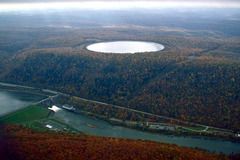Energy Storage Provides Many Benefits, But … It's Complicated
I always look forward to the Storage Week show each June, as the whole enterprise of energy storage is so important and so multi-varied. Over 95% of the world’s installed energy storage is pumped hydro, but there are a dozen or so chemical (e.g., battery), mechanical (e.g., flywheels) and thermal (e.g., molten salt) approaches to the problem. In fact, part of the problem that we as a society have in dealing with storage is the fact that it, in all its forms, provides no fewer than 22 different benefits to the four main energy stakeholders: generation, transmission, distribution, and load.
For instance, consider for a moment that the entire grid is constructed around peak loads that last less than 100 hours every year. If we didn’t need peaker plants to address that, our cost structures would be much more attractive than they do today. So here’s a question: Which stakeholders should pay for that benefit?
And even if you have an answer for that one, recognize that this benefit, i.e., addressing peak loads, is only one of the 22. Storage also:
• Enables low-cost voltage and frequency regulation.
• Makes it possible for huge capacities of wind and solar to be integrated into the grid-mix without their inherent issues (variability).
• Mitigates the risk of gas price volatility.
• Means better response times; batteries offer 2.5 – 4 times more flexibility than gas peaker plants.
…. and we’re just getting started; there are 16 more to go.
For a full hour, a panel of experts talked about how they lay out these benefits in a way that doesn’t miss any, but that doesn’t double-count certain things. It was impressive, to say the least. But then you’re back to the original issue: here’s a solution that has a certain cost and a wide range of benefits to different people. Who should pay for it?


Storing hydro energy is complicated indeed unlike storing a Solar Energy.